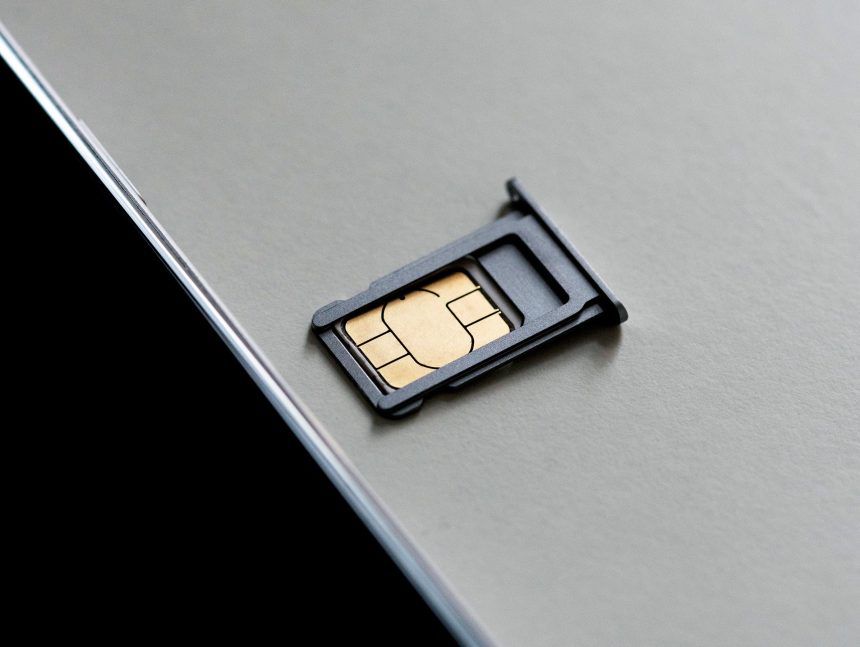Table of Contents
Ghana’s SIM Re-registration Data Was Never Authenticated, NIA Confirms
The National Identity Authority (NIA) has revealed that the biometric data collected during Ghana’s 2022 SIM card re-registration exercise was never verified against its national database – a major lapse in one of the country’s largest digital identity initiatives.
This disclosure raises concerns about the effectiveness of the entire SIM registration process, which was intended to curb mobile-related fraud and improve national data security.
Background: The 2022 SIM Re-registration Drive
In March 2022, the Ministry of Communications and Digitalisation directed all mobile users to re-register their SIM cards using the Ghana Card — the national biometric ID. The exercise, which ended in September that year, was aimed at linking all active mobile numbers to verified citizen identities.
According to official figures, nearly 39 million SIM cards were registered, while about 6 million were deactivated for non-compliance. The process involved both online USSD registration and in-person biometric capture at telecom outlets such as MTN, Vodafone, and AirtelTigo.
However, despite the nationwide effort, the NIA now confirms that none of the captured biometric data — fingerprints and facial images — was authenticated through its centralized system.
NIA Boss Confirms Major Oversight

The revelation came from the NIA’s new Director-General, Mr. Yayra Koku, who stated in a post on X (formerly Twitter) that biometric data collected during the 2022 registration “was never authenticated with the NIA database.”
This means that while telecom operators collected biometric data from millions of Ghanaians, the system never cross-checked this data against the official national identity records — leaving room for potential duplication or misuse.
Experts say this undermines the credibility of the entire exercise.
Industry Experts Label the Exercise “Incomplete”
Former Chief Executive Officer of the Ghana Chamber of Telecommunications, Dr. Kenneth Ashigbey, described the SIM re-registration as an “incomplete” process.
Speaking in a televised interview, Dr. Ashigbey noted that the biometric data “was not reading properly” and stressed that the registration should have been linked directly to the NIA’s system for accuracy.
“What we should have done was use the NIA database to complete the cycle,” he said.
This failure, he added, weakened the intended goal of linking SIM cards to verified Ghana Card identities to enhance digital security.

The 2022 exercise was one of Ghana’s most ambitious digital identity projects. It was meant to help government agencies and telecom operators combat fraud, track illegal SIM activities, and improve mobile money transparency.
However, the process was marred by technical difficulties and public frustration. Long queues, slow network systems, and malfunctioning biometric devices characterized the registration period.
Many citizens spent hours, even days — at registration centres, only to face repeated system errors or incomplete submissions.
Despite these challenges, the Ministry of Communications maintained that the exercise was crucial to national security. Yet, recent revelations suggest that the intended outcomes may have fallen short.
Fraud Cases Continue to Rise
If the 2022 registration was meant to reduce mobile money and identity fraud, available data suggests it has not achieved this goal.
The Cybercrime Unit of the Ghana Police Service recorded 7,250 cases of mobile money fraud in 2023, representing a 32% increase from 2022. The total financial loss was estimated at GHS 346 million.
The Bank of Ghana’s 2023 Fraud Report also revealed that mobile money fraud accounted for roughly 2,700 cases out of the 13,451 total fraud incidents across Ghana’s financial sector.
These figures highlight the growing need for more secure and verifiable digital identity systems — something the failed biometric authentication undermined.
Plans for a New and Improved Registration System
In January 2025, the new Minister of Communications and Digitalisation, Samuel Nartey George, announced plans to relaunch the SIM registration exercise with mandatory NIA database integration.
He revealed that the upgraded process would be conducted online and fully synchronized with the NIA to prevent past errors.
“This new system will put an end to the long queues and delays we experienced in the past. Subscribers will no longer have to physically visit any centre,” the Minister assured in a Facebook post.
However, in July 2025, he disclosed that a new Legislative Instrument (L.I.) would be laid before Parliament to replace the outdated 2010 regulation governing SIM registration.
“The 2010 L.I. is no longer fit for purpose,” he said, adding that the National Communications Authority (NCA) and the ministry were developing a “modernized and lawful framework” to support the new rollout.
No official date has yet been set for the commencement of the new registration exercise.

The failure to authenticate millions of Ghanaians’ biometric data has raised broader concerns about data integrity, privacy protection, and governance efficiency in Ghana’s digital transition.
Experts warn that without proper verification, fraudulent registrations could persist — undermining the credibility of national systems and leaving citizens’ data vulnerable to misuse.
For Ghana, a country positioning itself as a digital hub in West Africa, ensuring the accuracy and security of biometric data is essential for building public trust in e-government services, fintech, and telecom systems.
Conclusion
The NIA’s confirmation that the 2022 SIM re-registration data was never authenticated underscores serious gaps in Ghana’s digital identity management. While the government’s new plan promises a more integrated and user-friendly system, success will depend on effective coordination between agencies and a strong commitment to data security.
Until then, the lingering question remains: can Ghana rebuild public confidence in its digital registration systems after such a costly and flawed national exercise?
Read also: How to Link Your Mobile Money Account to Your Bank in Ghana for Faster, Cashless Transactions

